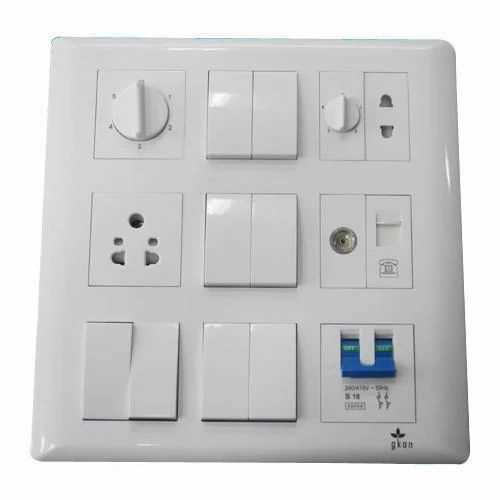
Modular home electrical wiring refers to the system of electrical wiring used in modular homes, which are also known as prefab homes or factory-built homes. These homes are constructed off-site in a controlled environment and then transported to their final location, where they are assembled. One of the key advantages of modular homes is the ease and efficiency with which they can be wired for electricity.
Modular home electrical wiring is typically done in a factory setting, which offers a number of benefits over traditional on-site wiring. First and foremost, working in a factory setting allows for greater precision and quality control. Electricians can carefully plan and execute the wiring process, ensuring that every connection is made correctly and safely. This reduces the risk of electrical problems down the line and makes for a more reliable and durable electrical system overall.
In addition to the increased precision and quality control, modular home electrical wiring also offers other advantages. For example, since the wiring is done in a controlled environment, adverse weather conditions have little to no impact on the process. This means that the construction timeline is not dependent on weather conditions, allowing for more predictable project schedules. Furthermore, because the wiring is done in a factory, it can be completed more quickly and efficiently than if it were done on-site.
Why Choose Modular Home Electrical Wiring?
Modular homes are becoming increasingly popular due to their cost-effectiveness, customization options, and quick construction timelines. One important aspect of modular home construction is the electrical wiring. Choosing modular home electrical wiring offers several advantages over traditional wiring methods.
1. Efficiency and Speed:
Modular home electrical wiring is designed to be efficient and easy to install. The wiring components are pre-manufactured in a controlled factory environment, ensuring precise sizing and proper insulation. This eliminates the need for on-site cutting and measuring, saving time and reducing the risk of errors.
The standardized nature of modular home electrical wiring also allows for faster installation. Wiring modules can be prepared in advance and easily connected together during the assembly process, significantly reducing the time required for electrical work.
2. Flexibility and Adaptability:
Modular home electrical wiring provides flexibility and adaptability for homeowners. The modular wiring system allows for easy additions or modifications to the electrical layout in the future. If homeowners want to add new outlets, lights, or appliances, they can simply connect additional wiring modules without the need for extensive rewiring.
This flexibility also allows for easier troubleshooting and maintenance. If an issue arises with a specific electrical circuit, it can be easily traced back to the modular wiring module and replaced or repaired without disrupting the entire system.
3. Safety:
Modular home electrical wiring is designed with safety in mind. The pre-manufactured wiring modules undergo rigorous testing and quality control measures to ensure compliance with electrical safety standards. The insulation materials used in modular wiring are highly fire-resistant, reducing the risk of electrical fires.
Additionally, the standardized wiring system reduces the chances of mistakes during installation. The connectors and components are designed to fit together seamlessly, minimizing the risk of loose connections or wiring errors that can lead to electrical hazards.
Conclusion:
Choosing modular home electrical wiring offers several benefits, including efficiency, flexibility, and safety. With its easy installation process, adaptability for future modifications, and emphasis on safety, modular home electrical wiring is a smart choice for those building or remodeling modular homes.
The Benefits of Modular Home Electrical Wiring
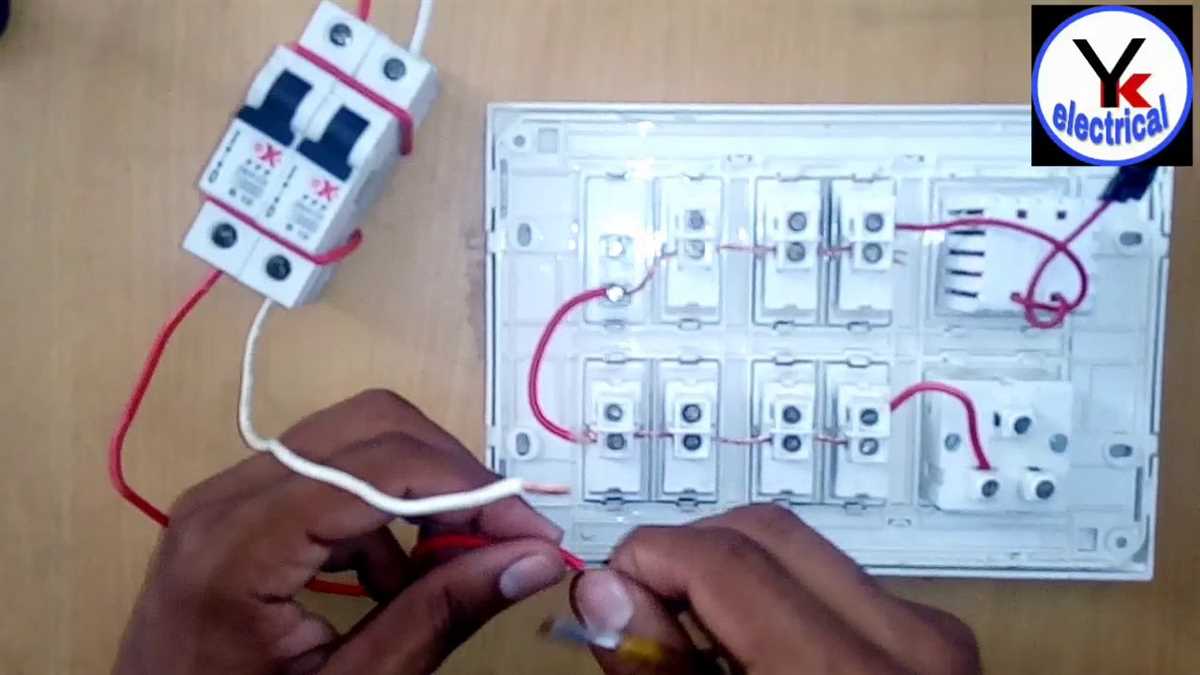
Modular home electrical wiring offers several advantages over traditional wiring methods. With modular wiring systems, electrical components are pre-fabricated and pre-wired in a factory setting, making installation faster and more efficient. This method eliminates the need for on-site cutting, stripping, and crimping of wires, reducing the risk of installation errors and improving overall safety.
1. Time-Saving: Modular home electrical wiring can significantly reduce installation time compared to traditional wiring methods. The pre-fabricated electrical components are designed to fit seamlessly together, allowing for quick and easy installation. This saves both time and labor costs for homeowners and electricians alike.
2. Flexibility: Modular wiring systems offer greater flexibility in home design and layout changes. As the electrical components are pre-fabricated and can be easily disconnected and reconnected, modifications to the electrical system can be made without the need for extensive rewiring. This makes it easier to accommodate future additions, renovations, or reconfigurations within the home.
3. Enhanced Safety: Modular home electrical wiring systems undergo rigorous testing and quality control measures during the manufacturing process. This ensures that the electrical components meet the highest safety standards and reduces the risk of electrical faults, short circuits, and potential fire hazards. Additionally, the pre-fabrication process minimizes the amount of on-site electrical work, reducing the risk of accidents or injuries during installation.
4. Cost-Effective: Although the upfront cost of a modular wiring system may be slightly higher than traditional wiring, the overall cost savings can be significant in the long run. The time saved during installation, reduced maintenance needs, and enhanced energy efficiency can result in lower utility bills and less frequent electrical repairs or replacements.
In conclusion, modular home electrical wiring offers numerous benefits including time-saving installation, flexibility for future changes, enhanced safety, and long-term cost savings. This innovative wiring method is becoming increasingly popular for homeowners looking for a reliable and efficient electrical system for their modular or prefabricated homes.
Pre-Fabrication: A Time-Saving Solution
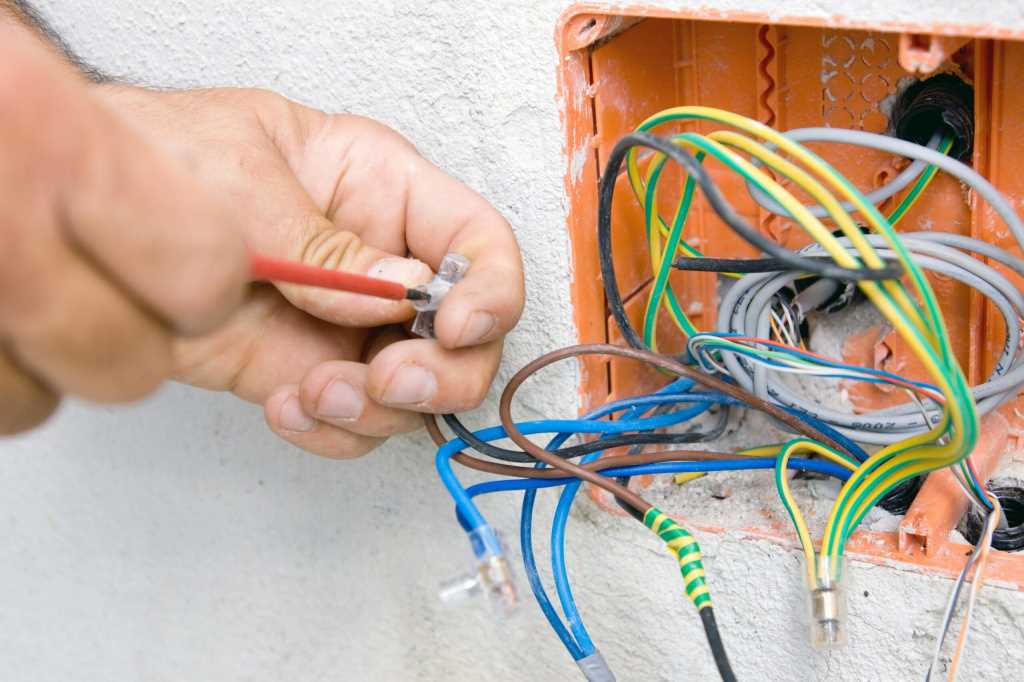
The process of pre-fabrication has become a popular solution in the construction industry, especially when it comes to electrical wiring in modular homes. This method involves preparing electrical components off-site before they are brought to the construction site, allowing for faster and more efficient installation.
One of the main advantages of pre-fabrication in modular home electrical wiring is the time-saving aspect. By pre-fabricating electrical components such as outlet boxes, junction boxes, and switch boxes, construction crews can eliminate the need for on-site assembly. This not only saves time but also reduces the risk of errors during installation.
- Efficiency: Pre-fabrication allows for better coordination between electrical and construction teams, as the electrical components can be manufactured and prepared in advance. This ensures that the wiring is ready to be installed as soon as the modular home is delivered to the site, minimizing delays in the overall construction process.
- Cost-Effectiveness: Pre-fabrication can also be cost-effective, as it reduces labor costs and material waste. With the components pre-assembled, there is less time spent on-site for installation, resulting in savings on labor expenses. Additionally, any excess materials can be used for future projects, reducing waste.
- Quality Control: Another benefit of pre-fabrication is the opportunity for enhanced quality control. By manufacturing the electrical components in a controlled environment, it is possible to ensure that they meet the required standards and specifications. This reduces the likelihood of faulty installations and the need for rework.
In conclusion, pre-fabrication is a time-saving solution in modular home electrical wiring. By preparing electrical components off-site, construction crews can save time, improve efficiency, reduce costs, and enhance quality control. This method not only benefits the construction process but also contributes to the overall success of modular home projects.
Enhanced Safety and Reduced Risk
The use of modular home electrical wiring systems offers a range of benefits, with enhanced safety and reduced risk being two of the most significant advantages. One of the key ways in which these systems enhance safety is through their standardized designs and meticulous manufacturing processes. Each component is carefully designed and tested to meet strict safety standards, ensuring that they are reliable and free from defects.
Additionally, modular home electrical wiring systems reduce the risk of electrical hazards by minimizing the need for on-site electrical work. Traditional wiring methods often require extensive on-site installation, which can increase the risk of accidents, errors, and fire hazards. In contrast, modular wiring systems are pre-assembled and tested in a controlled factory environment, reducing the potential for human errors and ensuring consistent quality.
Furthermore, modular wiring systems often feature built-in safety features such as circuit breakers and insulation systems that provide additional protection against electrical faults and short circuits. These features help to prevent electrical fires and reduce the risk of electrical shocks, making modular wiring systems a safer choice for residential and commercial buildings alike.
Overall, the enhanced safety and reduced risk provided by modular home electrical wiring systems make them an attractive option for architects, builders, and homeowners. By choosing these systems, individuals can have peace of mind knowing that their electrical installations are reliable, safe, and up to code.
The Installation Process of Modular Home Electrical Wiring
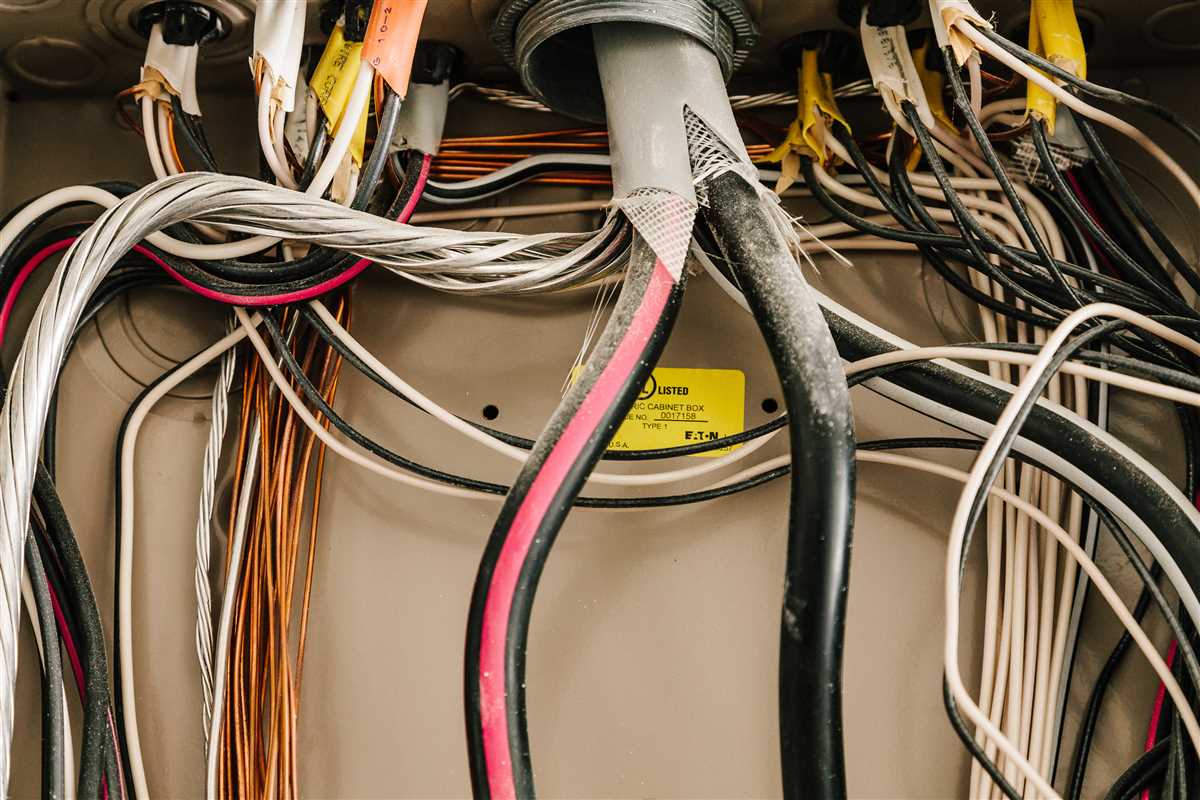
The installation process of modular home electrical wiring involves several steps to ensure that the wiring is safely and efficiently installed throughout the home. This process is crucial to providing electricity to all areas of the modular home and ensuring that all electrical components function properly.
First, an electrical plan is created to determine the placement and layout of all electrical outlets, switches, and fixtures in the modular home. This plan takes into consideration the specific requirements and code regulations for electrical installations in modular homes.
Once the electrical plan is finalized, the wiring installation can begin. This typically starts with the installation of the main electrical panel, which serves as the central hub for electrical power distribution in the home. The panel is securely mounted and connected to the main power source.
Next, the wiring is installed throughout the modular home. This involves running electrical wires through walls, ceilings, and floors to connect all outlets, switches, and fixtures. The wiring is properly secured and labeled to ensure easy identification and maintenance in the future.
During the installation process, safety measures are followed to prevent any electrical hazards. Grounding systems are installed to protect against electrical shocks and faults. GFCI (Ground Fault Circuit Interrupter) outlets are also installed in areas that are prone to moisture, such as bathrooms and kitchens, to prevent electrical shocks.
Once the wiring installation is complete, a thorough inspection is conducted to ensure that everything is up to code and functioning correctly. This inspection includes checking for proper grounding, wiring connections, and the correct placement and functionality of outlets and switches. Any necessary adjustments or repairs are made before the final approval of the electrical installation.
In summary, the installation process of modular home electrical wiring involves creating an electrical plan, installing the main electrical panel, running wiring throughout the home, following safety measures, and conducting a thorough inspection. This process ensures that the modular home is wired properly and safely, providing electricity to all areas of the home.
Modular Home Electrical Wiring: Cost-Effective Solution
Modular homes are becoming an increasingly popular choice for homeowners due to their affordability and flexibility. When it comes to electrical wiring, modular homes offer a cost-effective solution that can save homeowners both time and money.
One of the main advantages of modular home electrical wiring is that it is pre-installed at the factory. This means that the electrical wiring is already in place when the modules are transported to the home site. This eliminates the need for on-site electrical work, which can be time-consuming and expensive. Additionally, the pre-installed wiring is done by professionals who have extensive experience in modular home construction, ensuring a high level of quality and safety.
The modular home electrical wiring system also offers flexibility in terms of customization and future expansion. The wiring is designed to accommodate the specific needs and preferences of the homeowner, allowing for the addition of electrical outlets, switches, and fixtures as needed. This means that homeowners can easily adjust the electrical layout of their modular home without the need for major renovations or rewiring.
Another cost-saving aspect of modular home electrical wiring is the reduced risk of electrical problems and failures. Since the wiring is installed in a controlled factory environment, it is less likely to be affected by external factors such as weather conditions or human error. This minimizes the risk of wiring issues that could result in costly repairs or replacements.
In conclusion, modular home electrical wiring offers a cost-effective solution for homeowners. It eliminates the need for on-site electrical work, provides flexibility for customization and future expansion, and reduces the risk of electrical problems. Whether you are building a new modular home or looking to upgrade the electrical system in an existing one, modular home electrical wiring is a practical and efficient choice.
Maintaining and Upgrading Modular Home Electrical Wiring
Ensuring the safety and functionality of the electrical system in a modular home is crucial. Regular maintenance and occasional upgrades are necessary to prevent hazards and keep up with the changing electrical needs of the household. Here are some important considerations for maintaining and upgrading modular home electrical wiring:
Maintenance:
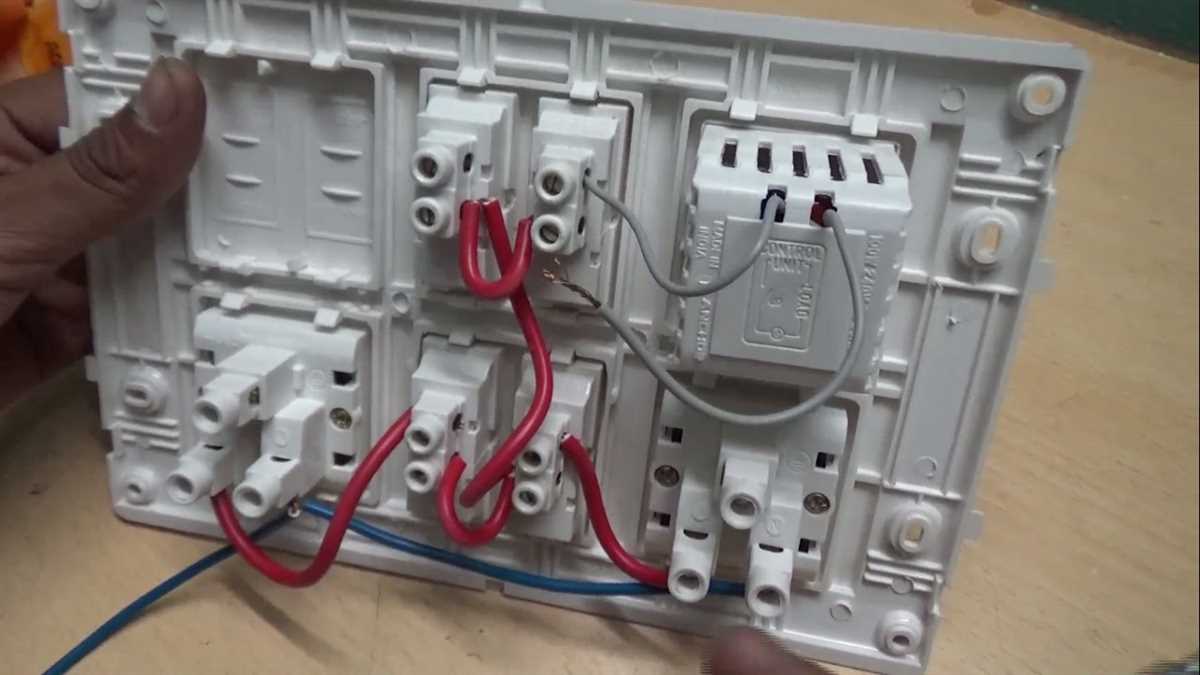
- Regularly inspect the electrical system for any signs of damage, wear, or aging. Look for frayed wires, loose connections, or signs of overheating.
- Check the condition of outlets, switches, and light fixtures. Replace any cracked or damaged components.
- Clean dust and debris from outlets and switches to prevent them from becoming fire hazards.
- Test ground fault circuit interrupters (GFCIs) and arc fault circuit interrupters (AFCIs) periodically to ensure they are functioning properly.
- Keep the electrical panel clean and organized. Avoid overloading circuits and make sure circuit breakers are properly labeled.
- Consider hiring a professional electrician for a more thorough inspection of the electrical system every few years.
Upgrades:
- If your modular home is older and still has aluminum wiring, consider upgrading to copper wiring. Aluminum wiring is more prone to overheating and causing fires.
- If you frequently experience power outages or voltage fluctuations, consider installing a whole-house surge protector or a backup generator for uninterrupted power supply.
- Add additional outlets or update existing ones to accommodate the growing number of electronic devices in your home.
- If you’re planning to install new appliances or upgrade to a higher-capacity HVAC system, make sure your electrical wiring can handle the increased load. Consult with a professional electrician if necessary.
- Consider installing energy-efficient lighting fixtures and smart home automation systems to reduce energy consumption and enhance convenience.
Regular maintenance and proactive upgrades can help ensure that your modular home’s electrical system remains safe, reliable, and up to date. It’s important to stay vigilant and address any issues promptly to prevent electrical hazards and maintain the overall efficiency of your electrical system.